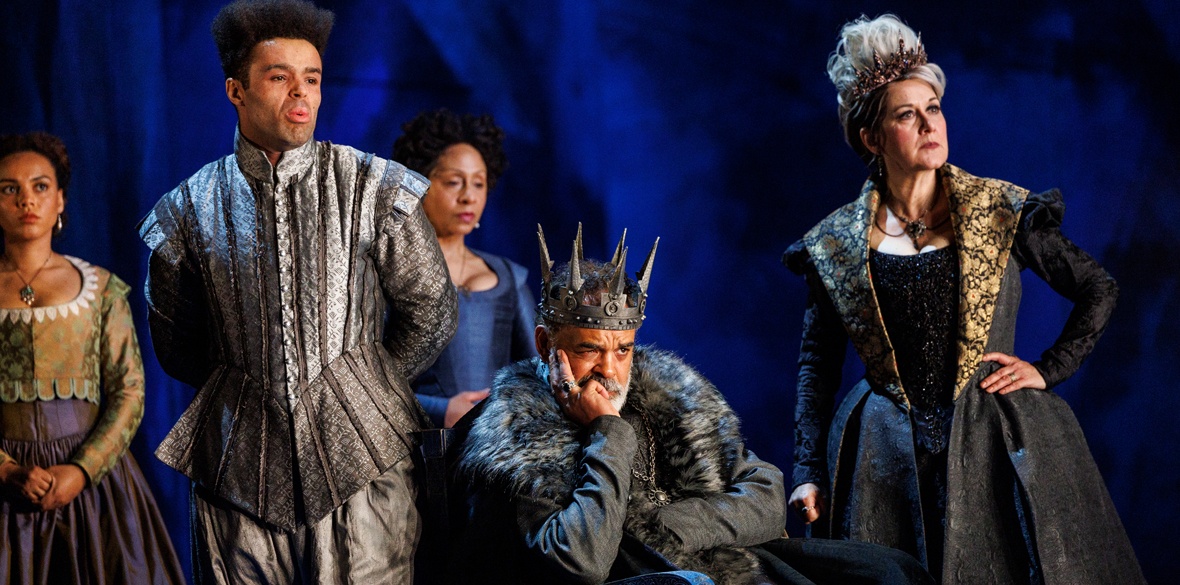This is the last article you can read this month
You can read more article this month
You can read more articles this month
Sorry your limit is up for this month
Reset on:
Please help support the Morning Star by subscribing here
Cymbeline
The Royal Shakespeare Theatre
MODERN directors of Shakespeare often appear to start with the question, what do we want or, at best, encourage the play to say? To be fair many of his plays lend themselves to this drive for “interpretation”.
For his return to the theatre he has worked at for 30 years and the company he has led since 2012, the grandly named artistic director emeritus, Greg Doran, has recalled one of the central tenets of the RSC’s founders.
When Peter Hall and John Barton established what was to become a leading world theatre company in 1960, they centred their work on the language of the plays. The actors must not only pursue a surgical analysis of linguistic meaning but understand that the communication of the plays lay in the shape and rhythm of the blank verse.
Cymbeline, arguably the most complex — some would say confusing — of the Bard’s works, emerges in Doran’s new production with pristine clarity. From the opening when the background to a fairy-tale plot moving between ancient Britain and Renaissance-cum-Roman Italy, we know exactly where we are and who the main characters are to be.
On a bare stage overlooked by a huge harvest moon, the colour of which changes with the moods of the action, the archetypal story unfolds from once-upon-a-time to they-all-lived-happily-ever-after.
A princess and her lover are frustrated by the king, who is under the influence of his evil queen who, in turn, is determined to marry her off to her boorish son, who is further betrayed by a double-dealing Italian Lothario.
Every actor in this large cast invests their roles with an understanding quite beyond the artificiality of the story. The emotional intensity has a reality based on their words, whether in the controlled defiance of Amber James’s spunky Imogen; the distraught agony of her husband, Ed Sayer’s Posthumus, who believes he has killed her; the buoyant and oily charm of the would-be seducer, Jamie Wilkes’s Iachimo; or the dissembling energy of Alexandra Gilbreath’s poisonous Queen.
Even the truculent buffoonery of her son, Conor Glean’s Cloten, becomes more than the standard clowning in his injured self-belief.
Slapstick alternates with black-ish comedy: the princess awakes from a drugged sleep to find herself next to a headless body dressed in her husband’s clothes while battles are fought and gods descend from the heavens to reassure that all will work out.
However, a work which is often treated as a pantomimish romp becomes something extraordinary given Doran’s recognition that coming from a dramatist with Twelfth Night, Hamlet and Lear under his belt, Cymbeline is about something more worthwhile.
Cymbeline is clearly an experiment with a new genre, and misleadingly termed one of the late romances. The play carries and is its own interpretation, needing no directorial pointing.
Throughout Paul Englishby’s superb mood music provides its commentary on a near perfect production.
By the final scene, when multiple rabbits are pulled out of numerous hats to explain what we already have seen and understood, and reconciliation, harmony and peace are promised to all, we go out into the real world with the comfort and pleasure that a well told bedtime story can offer all members of society.
Runs until May 27. Box office: 01789 331 111, rsc.org.uk









